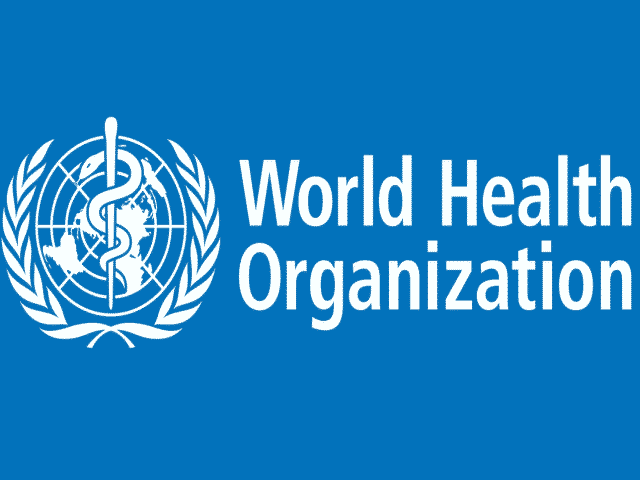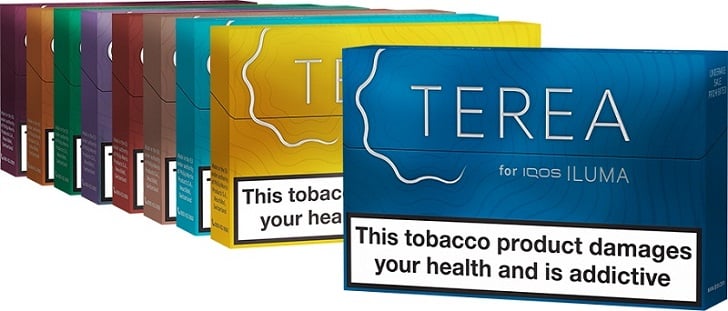 Reading Time: 4 minutes
Reading Time: 4 minutesHeat not Burn products are coming to the attention of a new audience – and that might not be good news. The World Health Organisation is gearing up for its latest tobacco control junket and, for the first time, heated tobacco products are on their radar. They haven’t attracted as much of the WHO’s dislike as electronic cigarettes yet, but this could be just a matter of time.
The WHO event is the Seventh Conference of Parties to the Framework Convention on Tobacco Control, which is a bit of a mouthful. Unsurprisingly it usually goes by the less awkward title of COP 7. The previous one, COP 6, was held in Moscow two years ago and attracted quite a lot of bad press. The organisers, who include the UK’s Action on Smoking and Health, seem to be somewhat paranoid, and they claim to be terrified that the tobacco industry will somehow manage to sneak observers in to find out what’s happening. Last year they avoided this risk by first banning all members of the public, in case any were Big Tobacco spies, then banning all members of the press.
As COP is funded from taxpayers’ money not everyone was happy about the oppressive secrecy, especially as some hints of what was going on did slip out. Although it was supposed to be a conference to set tobacco control policy, the reality is that no dissent from the organizers’ position was allowed. It’s been alleged that the health minister of a fairly large country was physically forced back into his seat when he disagreed with one of the proposals. Obviously it’s hard to say if this really happened or not, because any potential witnesses had been locked out.
They’re paranoid, and they are out to get us
This year’s event will be held in India, and it seems the paranoia has got even worse since 2014. The organisers are talking seriously about banning representatives of any government that’s involved with tobacco sales in any way, which is most of them. The Indian government itself might be shut out, despite paying to host the event.
So what does this have to do with heat not burn? The agenda for COP 7 was released last week, but for a couple of weeks before that there has been a sudden increase in interest among tobacco control activists. Anti-smokers have been asking questions about heat not burn on Twitter, mainly trying to find out what e-cigarette users think of it.
Some people were puzzled about this. Why ask vapers for their opinions about heat not burn? Obviously there are connections – both are alternatives to smoking – but they’re very different products. Surely it would have made more sense to ask smokers what they thought, but there was no sign of anyone doing that. Of course that could just have been the usual dismissive public health attitude towards smokers, but was there something more significant behind it?
As it turned out, yes there was. One of the documents the WHO released last week was their new position paper on electronic cigarettes, and as well as e-cigs it mentions heat not burn products. It’s not a big mention, but it’s there – just a single sentence about how the tobacco industry “has launched alternative nicotine delivery systems that heat but do not burn tobacco”.
Bad attitudes
Unfortunately the WHO has been extremely negative about e-cigarettes right from the start, and the tone of this new paper suggests they’re going to be exactly the same about HnB. This probably shouldn’t be a big surprise – the organisers of FCTC lost interest in keeping people healthy long ago. Their priority now is attacking the tobacco industry every chance they get, and heat not burn is an obvious target. After all the leading products are all actually made by tobacco companies, unlike most e-cigs. They contain tobacco, and some of them have well-known cigarette brands. It’s pretty much inevitable that HnB is going to be painted as another evil tobacco industry plot.
So does this attention from WHO mean heat not burn is doomed before it even has a chance to get off the ground? No, not really. Look at what’s happening with e-cigarettes. Yes, the USA and EU have introduced tough new laws – but they haven’t actually banned them, and that’s what the WHO was demanding as recently as last year. There’s now so much evidence they’re safer than cigarettes that even the WHO can’t justify a ban.
It’s almost certain that the same will happen with HnB. Not much research has been done yet, but when the evidence starts coming in it’s likely to show that these products are much safer than conventional smoking. The FCTC crew will huff and puff, but governments aren’t likely to ban the products. They’ll get health warnings, and possibly plain packs, but they aren’t going to be banned except in a few totalitarian states.
Hints of positivity
Actually it could be good news that World Health Organisation seem to have been talking to tobacco control people about HnB. While a lot of them are driven by hatred of the industry, some of the more open-minded ones will be interested in anything that gives a safer alternative to smoking. One or two of those were among the ones asking questions, including the chief of an NHS stop smoking service. The same service was the first in Britain to start recommending e-cigs to smokers who wanted to quit; if HnB looks like being a real alternative – and with the current technology it certainly does – it could find supporters in unlikely places.
Sadly it’s a fact of life in today’s world that, whenever something new and enjoyable appears, a lot of people will instinctively want to ban it. Sometimes they succeed, worse luck. More often they manage to cause some problems, but the new technology goes on to eventually become widely accepted. Remember how mobile phones would cause sterility and brain cancer? Now everybody has one. Heat not burn will be opposed by people like the WHO, but the chances are it’s not going to go away. Technology has caught up to the point where it really works as proven by the fantastic iQOS device, and it’s just going to keep getting better.











